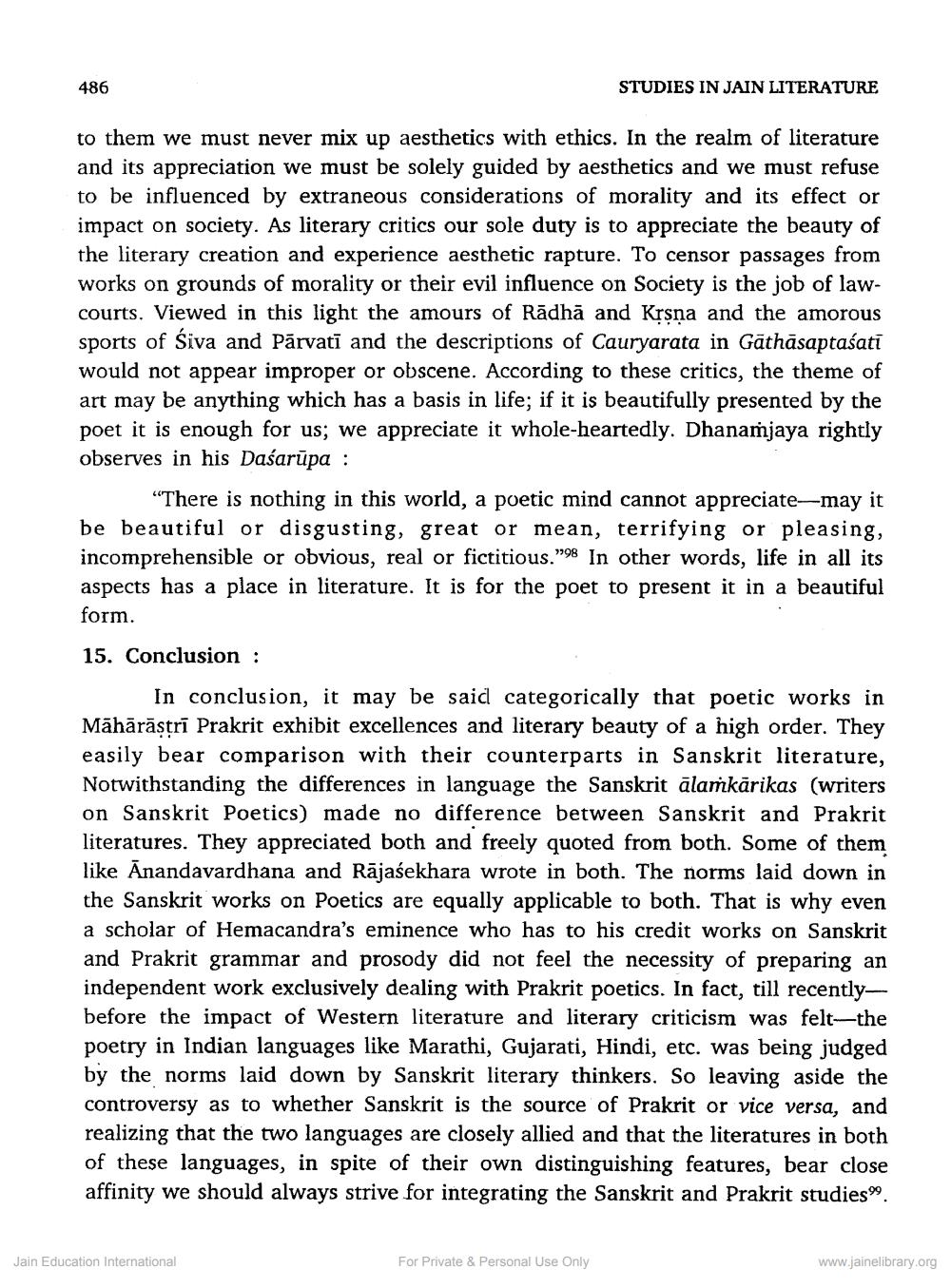________________ 486 STUDIES IN JAIN LITERATURE to them we must never mix up aesthetics with ethics. In the realm of literature and its appreciation we must be solely guided by aesthetics and we must refuse to be influenced by extraneous considerations of morality and its effect or impact on society. As literary critics our sole duty is to appreciate the beauty of the literary creation and experience aesthetic rapture. To censor passages from works on grounds of morality or their evil influence on Society is the job of lawcourts. Viewed in this light the amours of Radha and Krsna and the amorous sports of Siva and Parvati and the descriptions of Cauryarata in Gathasaptasati would not appear improper or obscene. According to these critics, the theme of art may be anything which has a basis in life; if it is beautifully presented by the poet it is enough for us; we appreciate it whole-heartedly. Dhanamjaya rightly observes in his Dasarupa : "There is nothing in this world, a poetic mind cannot appreciate--may it be beautiful or disgusting, great or mean, terrifying or pleasing, incomprehensible or obvious, real or fictitious."98 In other words, life in all its aspects has a place in literature. It is for the poet to present it in a beautiful form. 15. Conclusion : In conclusion, it may be said categorically that poetic works in Maharastri Prakrit exhibit excellences and literary beauty of a high order. They easily bear comparison with their counterparts in Sanskrit literature, Notwithstanding the differences in language the Sanskrit alamkarikas (writers on Sanskrit Poetics) made no difference between Sanskrit and Prakrit literatures. They appreciated both and freely quoted from both. Some of them like Anandavardhana and Rajasekhara wrote in both. The norms laid down in the Sanskrit works on Poetics are equally applicable to both. That is why even a scholar of Hemacandra's eminence who has to his credit works on Sanskrit and Prakrit grammar and prosody did not feel the necessity of preparing an independent work exclusively dealing with Prakrit poetics. In fact, till recently before the impact of Western literature and literary criticism was felt--the poetry in Indian languages like Marathi, Gujarati, Hindi, etc. was being judged by the norms laid down by Sanskrit literary thinkers. So leaving aside the controversy as to whether Sanskrit is the source of Prakrit or vice versa, and realizing that the two languages are closely allied and that the literatures in both of these languages, in spite of their own distinguishing features, bear close affinity we should always strive for integrating the Sanskrit and Prakrit studies99. Jain Education International For Private & Personal Use Only www.jainelibrary.org




